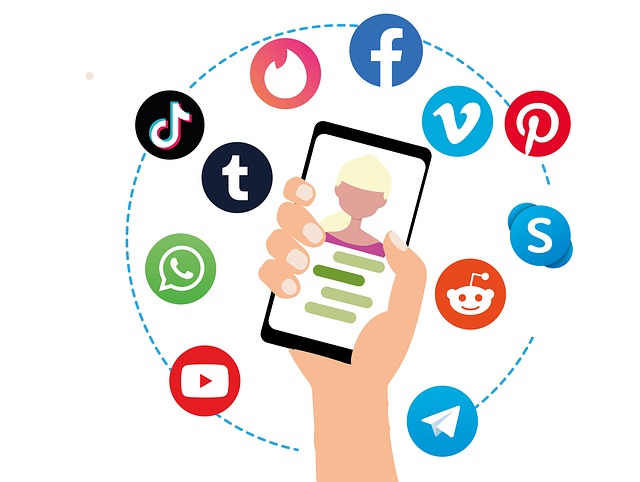Online therapy platforms have transformed mental healthcare by providing accessible, convenient, and confidential services via digital means. Driven by technological advancements and increasing internet access, these platforms enable individuals to connect with licensed therapists from home, breaking down geographical barriers and offering flexible schedules. They offer various therapeutic services, including CBT and interpersonal skills training, through secure video conferencing, messaging, and AI-driven personalized plans. While privacy and security remain critical challenges, online therapy platforms have proven effective for managing conditions like anxiety, depression, and PTSD, making mental healthcare more inclusive and accessible than ever before.
“Unveiling the transformative power of e-therapy, this comprehensive guide explores how digital solutions are revolutionizing mental healthcare. As mental health awareness grows, so does the popularity of online therapy platforms, offering accessible and convenient support. From understanding the concept to its impact on diverse therapeutic approaches, we delve into the benefits, security measures, and real-life success stories. Discover how these platforms work, the challenges they face, and their potential to shape the future of mental wellness.”
Understanding E-therapy and its Rise in Popularity

E-therapy, or online therapy platforms, has emerged as a transformative force in the mental health landscape. It involves delivering therapeutic services and counseling via digital means, making professional support more accessible to individuals who may face barriers such as geographical limitations, stigma, or busy schedules. With advancements in technology and increasing internet penetration, e-therapy has seen a significant rise in popularity.
The convenience of online therapy platforms is one of the primary reasons for their growing adoption. People can now connect with licensed therapists from the comfort of their homes, eliminating the need for travel. This accessibility is particularly beneficial for those in remote areas or with limited mobility. Additionally, e-therapy offers a sense of anonymity and privacy, which can encourage individuals to open up about their struggles without the social pressures often associated with traditional face-to-face therapy sessions. As a result, online therapy platforms are breaking down barriers and making mental health care more inclusive.
Benefits of Online Therapy Platforms for Mental Health

Online therapy platforms have emerged as a game-changer in the mental health landscape, offering numerous benefits that make accessing treatment more convenient and accessible than ever before. One of the primary advantages is their accessibility; individuals from diverse geographic locations can connect with qualified therapists through video conferencing, phone calls, or messaging apps, eliminating barriers such as physical distance and transportation challenges.
These platforms also foster a sense of comfort and flexibility for clients, allowing them to participate in sessions at times and places that suit their schedules. Moreover, online therapy provides a safe and confidential space, often with advanced encryption technologies, ensuring privacy concerns are addressed. With the rise of smart devices, receiving much-needed support has become as simple as downloading an app, making mental health care more inclusive and readily available to those who may have otherwise faced obstacles in seeking traditional face-to-face therapy.
Types of Digital Therapies Available

In the realm of digital therapies, various online therapy platforms have emerged as powerful tools for addressing mental health disorders. One prominent type is cognitive behavioral therapy (CBT), which helps individuals identify and change negative thought patterns and behaviors. These platforms often offer interactive exercises, guided meditations, and personalized feedback to support users in their journey towards improved mental well-being.
Another notable category is interpersonal or social skills training, designed to enhance communication and relationship building. Through video conferencing, role-playing scenarios, and group discussions, these online therapy platforms foster a sense of connection and provide valuable insights into navigating interpersonal dynamics. Moreover, some platforms incorporate elements of mindfulness, stress reduction techniques, and support groups, creating a comprehensive digital therapeutic experience tailored to individual needs.
How Do Online Therapy Platforms Work?

Online therapy platforms have revolutionized access to mental health care, providing individuals with a convenient and discrete way to seek support from licensed therapists. These digital tools offer a range of services, typically including live video sessions, messaging, and interactive tools tailored to specific issues. Users can connect with therapists from the comfort of their homes, breaking down geographical barriers that traditionally limited access to care.
The effectiveness of online therapy platforms lies in their ability to mimic in-person interactions while incorporating additional features. Therapists use secure video conferencing software to create a safe and confidential space for clients. Some platforms even incorporate artificial intelligence to personalize treatment plans, offer coping strategies, and monitor progress between sessions. This technology-driven approach ensures continuity of care, enabling individuals to receive consistent support throughout their mental health journey.
Ensuring Privacy and Security in Virtual Therapy Sessions

In the digital age, as more people turn to online therapy platforms for mental health support, safeguarding privacy and security has become paramount. Virtual therapy sessions often involve sensitive discussions and intimate details about individuals’ lives, making it crucial for both patients and therapists to understand the robust data protection measures in place. Reputable online therapy platforms invest heavily in encryption technologies to ensure that all communication remains confidential, protecting against unauthorized access or breaches that could compromise personal information.
Furthermore, these platforms employ secure login mechanisms, including multi-factor authentication, to guarantee that only authorized individuals can gain access to client records. Regular security audits and updates also help maintain the integrity of their digital infrastructure, addressing emerging threats and vulnerabilities. By prioritizing privacy and security, online therapy platforms not only comply with legal requirements but also build trust with their users, fostering a safe environment for vulnerable individuals seeking mental health support.
Challenges and Limitations to Consider

While e-therapy, or online therapy platforms, offer significant benefits for mental health support, several challenges and limitations must be acknowledged. One primary concern is ensuring patient privacy and data security. As more individuals seek counseling through digital channels, protecting sensitive information becomes paramount. Online platforms are susceptible to technical glitches, internet connectivity issues, and potential cyberattacks, which could compromise client confidentiality.
Additionally, the effectiveness of e-therapy relies heavily on the quality of the therapeutic relationship between clients and practitioners. Building a strong rapport virtually can be challenging, especially for individuals who prefer in-person interactions. The lack of non-verbal cues and immediate feedback can impact the depth of connection and understanding fostered through online sessions, potentially affecting treatment outcomes.
Success Stories: Real-life Experiences with E-therapy

E-therapy, or online therapy, has transformed the way many individuals access mental health support. One of its greatest strengths lies in the success stories that emerge from its use. People from diverse backgrounds and facing various mental health disorders have found relief and improved well-being through online therapy platforms. These platforms offer a convenient, accessible, and often more affordable alternative to traditional in-person therapy, removing geographical barriers and making professional help available to those who might otherwise struggle to find it.
Many real-life experiences highlight the effectiveness of e-therapy. Some individuals have shared stories of overcoming anxiety disorders, depression, and even post-traumatic stress disorder (PTSD) through online sessions with licensed therapists. These platforms often provide structured programs, personalized treatment plans, and regular check-ins, ensuring a tailored approach to healing. With privacy and confidentiality as key features, e-therapy offers a safe space for vulnerable individuals to open up and work towards their mental health goals.
The Future of Mental Healthcare: Integrating Online Therapy

The future of mental healthcare is evolving rapidly, and integrating online therapy platforms is at the forefront of this transformation. As technology advances, digital solutions like e-therapy are becoming increasingly accessible and effective, offering a convenient and discrete way for individuals to access mental health support. Online therapy platforms provide a wide range of services, from cognitive-behavioral therapy to mindfulness practices, all available at users’ fingertips through mobile apps or web interfaces.
This shift towards digital care is not just a trend; it’s a necessity driven by the growing demand for mental health services and the recognition that traditional in-person therapy may not always be feasible or preferred. Online platforms break down geographical barriers, making professional support more accessible to rural areas and individuals with limited mobility. Furthermore, the convenience of scheduling sessions at one’s own pace contributes to improved treatment adherence and overall well-being outcomes.
